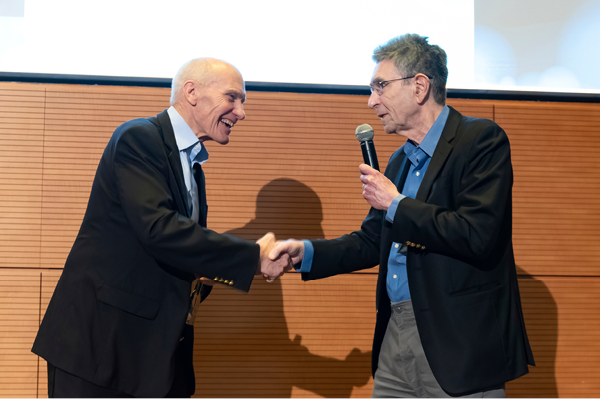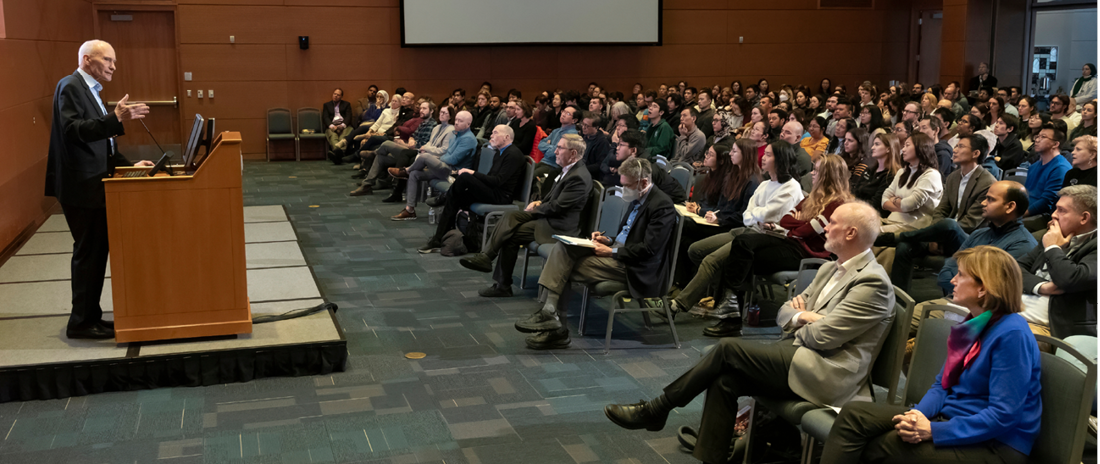
Autologous CAR T cell therapy, which involves taking immune system cells from a patient, altering them to improve their ability to fight disease, and then infusing them back into the patient, has been a “disruptive therapy,” providing new hope for patients with blood cancers. Now, it’s emerging as a promising therapy for brain cancer and autoimmune diseases, said Carl June, MD, known as the “father of CAR T cell therapy,” in the Robert J. Lefkowitz, MD, Distinguished Lecture on Tuesday, February 11, hosted by Duke University School of Medicine.
“CAR success has now led to all kinds of innovations that are emerging,” said June, the Richard W. Vague Professor in Immunotherapy at the Perelman School of Medicine at the University of Pennsylvania. This includes three clinical trials studying CAR T cell therapy to treat glioblastoma, one of the deadliest brain cancers.
CAR T cell therapy is also being studied as a treatment for autoimmune diseases. June shared an example of one lupus patient who has been disease-free for three years after a single infusion of CAR T cells.
“When I was in medical school, the only way to treat autoimmune disease was immune suppression,” he said. Early work suggests that CAR T cells may induce an “immune reset” for these patients. “It’s a reboot of the immune system by turning off all B cells for a short time. It’s a complete paradigm shift in how to treat autoimmune disease,” he said.
June, whose work led to the first CAR T cell therapy approved by the Food and Drug Administration, traced the history of their development in his talk, "The Long and Winding Road Traveled by CAR T Cells." It was the keynote address for the two-day symposium, "Charting New Horizons for Discovery and Translational Science," held Monday, February 10 - Tuesday, February 11.
CAR T cell therapy and other cell-based and gene therapies have been truly disruptive for cancer treatment, with 23 new therapies approved over just seven years, June said. Compared to the previous disruptive therapy for cancer — recombinant therapies such as monoclonal antibodies — the rate of approvals for CAR T and other cell-based therapies has been a “landslide,” he said. Currently, there are nearly 1,000 clinical trials nationwide studying CAR T cells.
He also addressed the need to better understand what puts certain patients at risk for side effects such as cytokine release (a systemic inflammatory reaction). He said that such side effects are less common now that earlier-stage patients are being treated with the therapy.
At the talk’s end, Robert Lefkowitz, MD, praised June for his compassionate care of patients.
